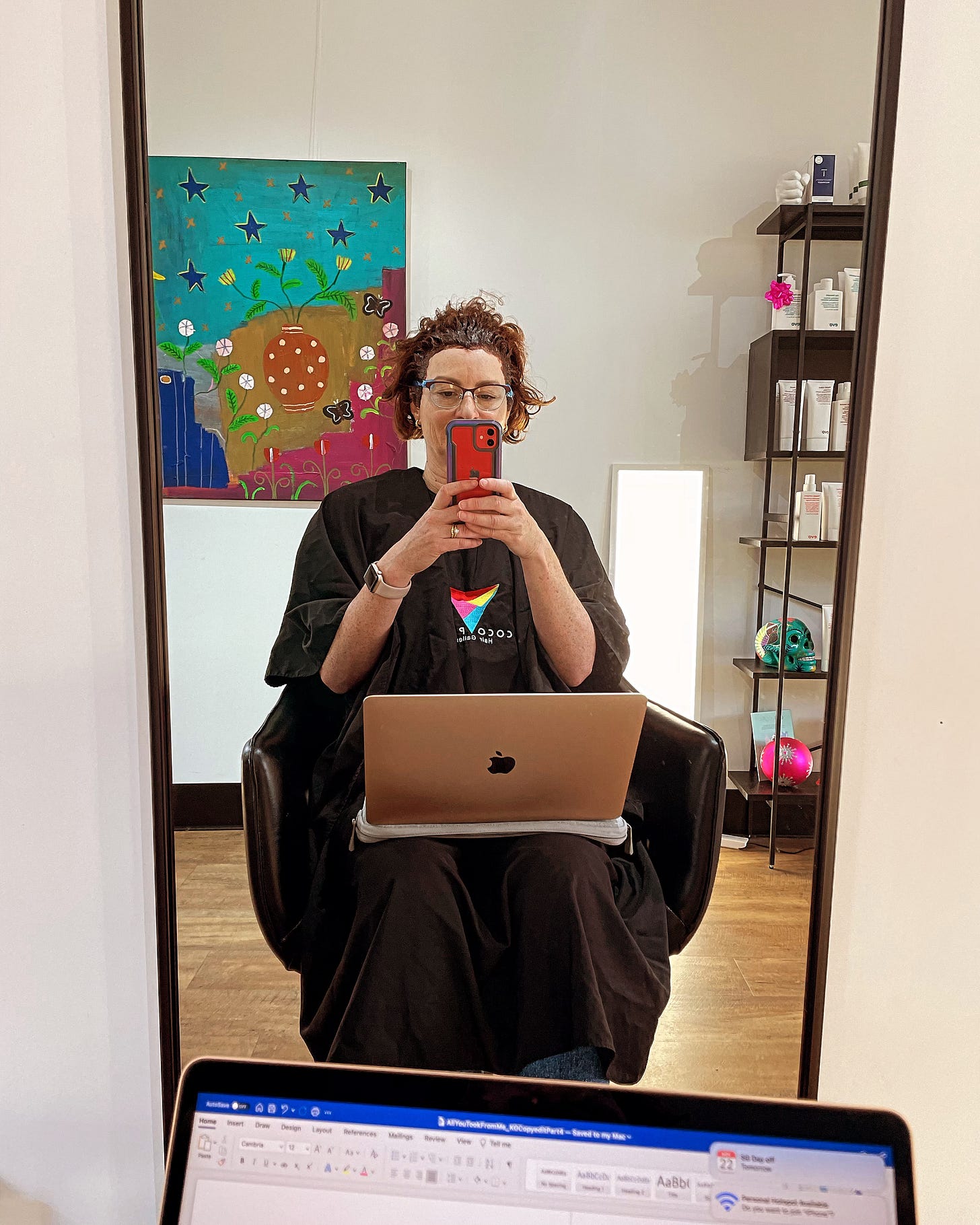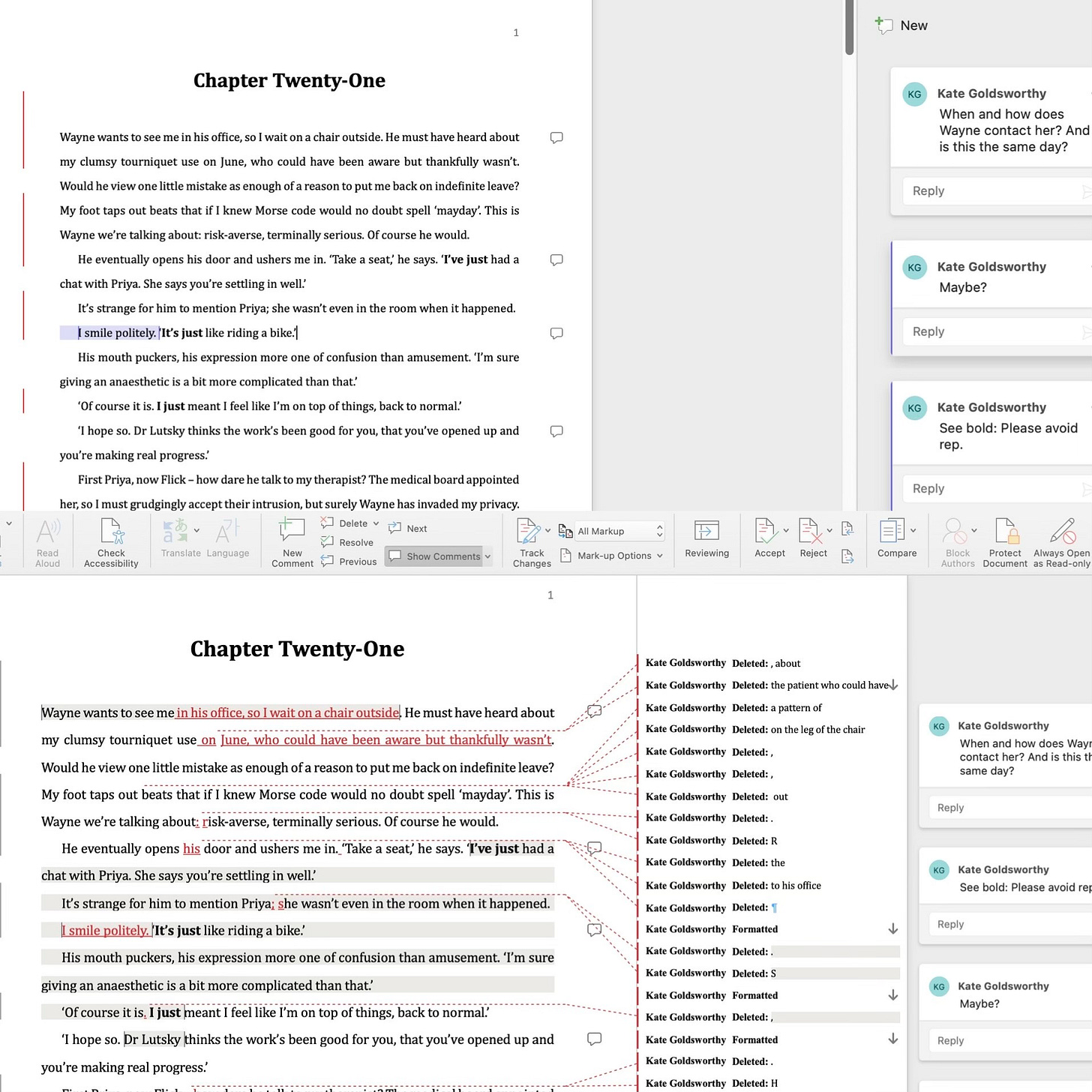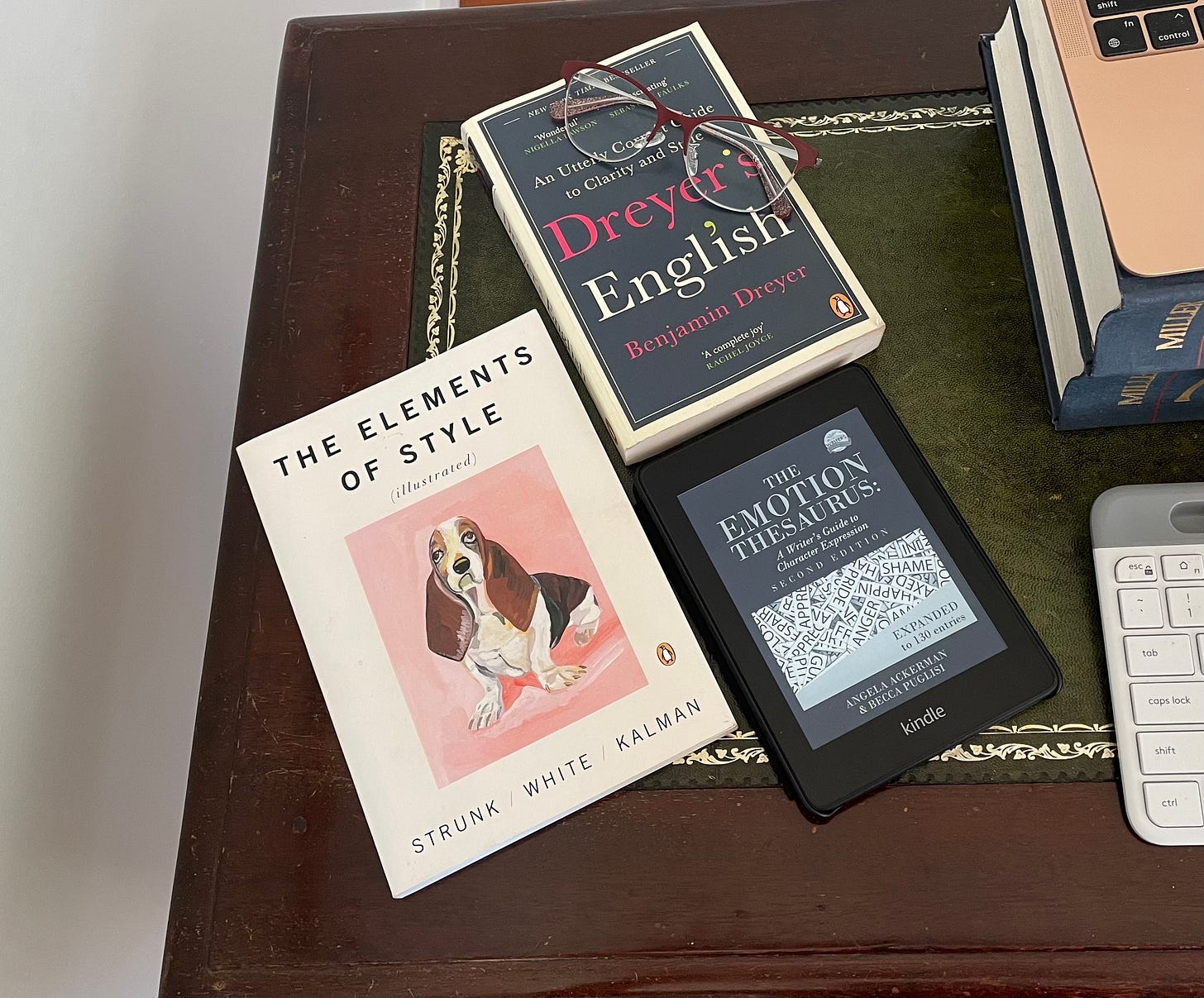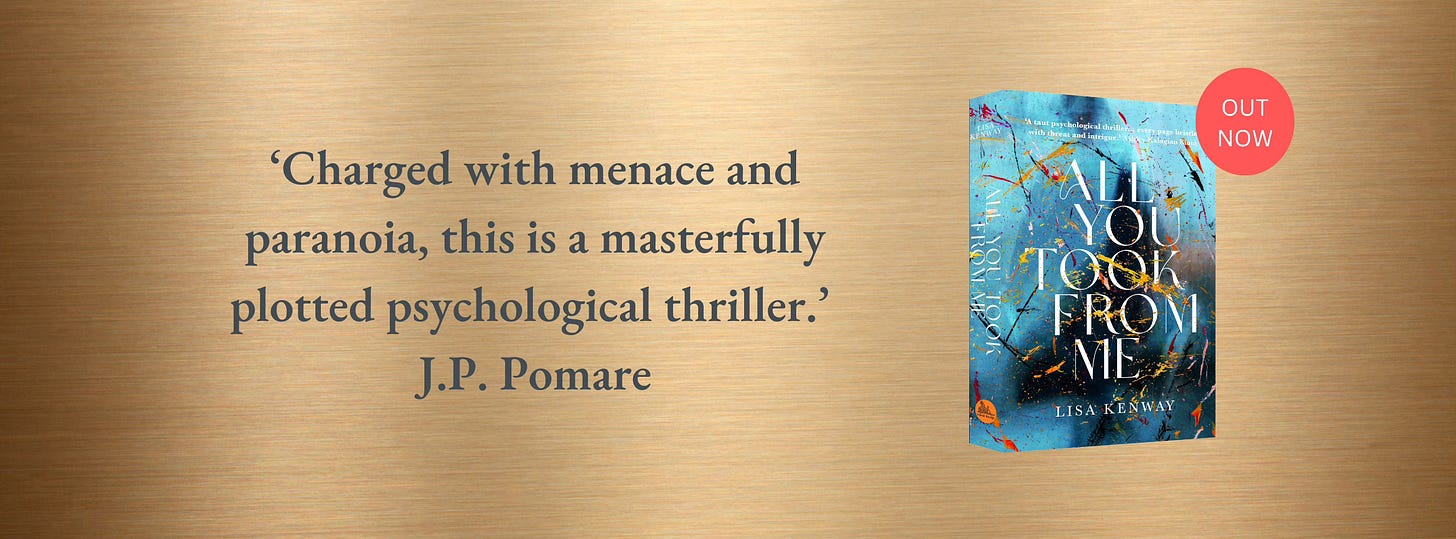
As promised, this newsletter will dish the dirt on my experience of having my debut novel copy edited. At the time of writing, I’ve been working on the copy edit of All You Took From Me for a few weeks, and I’m only 21 chapters into a 35-chapter novel, so my first observation is that a copy edit can take time. I’ll have to continue with the editing soon, but I’m taking time out to share my observations so far:
Did I mention it might take a while? An efficient friend whose crime novel is also coming out next year estimated that their copy edit took 35 hours. I have no idea how much time mine has taken, but I have a feeling it’s already been longer than that. In other words, if your publisher gives you a timeframe of less than a few weeks to do a copy edit, you’ll need to clear your schedule and stock up on caffeine.
Don’t be afraid to ask your editor for guidance. Editors are busy, they’re used to working with experienced authors, and if you don’t ask for instructions they might assume you know how to respond to the copy edits they’ve sent. If you’re a debut author, even if you’ve had short pieces edited before, you probably won’t know what to do. The copy-edited document has been formatted by the editor, and I’m fairly sure they don’t want you mucking up their work. Nor do they want you wasting your time or theirs. Ask them how they want you to respond to the edits before you start. Traps I fell into included not realising until halfway through Chapter Two that my own edits weren’t marked up in the Word document, for reasons I’m yet to comprehend, which brings me to the next point.
Microsoft Word will likely crash on you at some point. The first time Word crashed on me mid-edits, I freaked out. My panic amplified when I realised the colours of the marked-up text had changed when Word restarted (my edits became red and my editors’ blue, again for some incomprehensible reason). When I followed the advice in point two, my editor commiserated with me about how glitchy Word can be, then told me I’d better resign myself to using it because it’s publishing industry standard and we all have to live with it. Fortunately my changes had been saved, albeit in a different colour, which is worth highlighting.
Save your work! You’re writers, you know the drill: back up your work or suffer the consequences. There’s nothing more disappointing than spending ages crafting the perfect sentence that answers not one but two queries in the margin, only to have Word crash and lose an hour’s work. This only happened to me once, but believe me, I made certain it didn’t happen again.
Read the comments in Simple Mark-up before subjecting yourself to All Mark-up. My editor gave me this advice when I reached out to her as per point two, but I didn’t follow it until Chapter Twenty, when a timeline error made the edits more complicated (or heavy in editor-speak) than most. I realised, as I rewrote part of the scene to fix the glaring error which had crept in during the structural edit, that it would have been a waste of time to accept the editor’s suggested punctuation changes on a paragraph I would soon delete. The moral of the story? Listen to your editor – which doesn’t mean you must agree with everything they suggest.
You can push back on changes that affect voice. Your editor is a highly trained, knowledgable profession whose grasp of grammar and punctuation is likely far superior to yours (especially if you went to high school when teaching grammar was unfashionable, as I did). However, that doesn’t mean you have to agree with every change they suggest – provided you have a good reason to object. After all, this is your book, with your name on the cover, and it needs to sound like you wrote it. My novel was peppered with sentence fragments, which I admit I’m prone to overuse. My editor was keen to eradicate them, which I didn’t want to do, so we came to a compromise: she marked-up fragments she was ambivalent about, and I then made a decision about which ones to keep. The editor’s job is to improve your work, but ultimately, it is your work.
You will learn more about writing than you expect. What a privilege it is to have someone who edits great books by respected authors not only engaging closely with your work, but applying everything they’ve learned over the years to improve it! A good copy editor doesn’t only correct grammar and punctuation; they also interrogate every character motivation, every plot point, every setting detail and the timeline of events to make sure the story makes sense, the character motivations are consistent and all is communicated clearly to the reader. Not only will the copy editing process improve your book, it will also improve you as a writer if you pay attention.
Darlings will be slaughtered (again). Those clever quips that don’t advance the plot but you left in the manuscript because you were proud of them? Expect them to be erased during the copy edit, perhaps with a comment in the margin to the effect that they were unnecessary. They probably were. Get over it.
Certain craft books will be useful, as will a dictionary and thesaurus. Copy editing appeals to my perfectionist tendencies (you’d be forgiven for questioning them if you zoomed in to see how many times I used ‘just’ in the extract above). I’ve found myself poring over related craft books as I edit, and I’ve shared a selection of the most useful ones below.
And finally, the crutch words. Apart from ‘just’ it seems I have a fondness for facts, specifically the phrase ‘the fact that’, I love the word ‘stretch’ (it is an excellent word), I seem to write ‘there’s no way’ more than I realised and ‘not to mention’ more times than I care to mention. As there are still another 14 chapters to edit, I suspect that list will grow.
There’s a lot more to copy editing than I’ve touched on here, but I hope I’ve given you an idea what it involves. A clean, copyedited manuscript is a beauty to behold, but those threads won’t resolve themselves, so I’d better get back to the edits for Chapter Twenty-Two.
Stay tuned for the first instalment of my monthly newsletters featuring the #DebutCrew2024, launching in two weeks’ time. I can’t wait to share the crew’s January releases with you.






Looking forward to your debut next year!